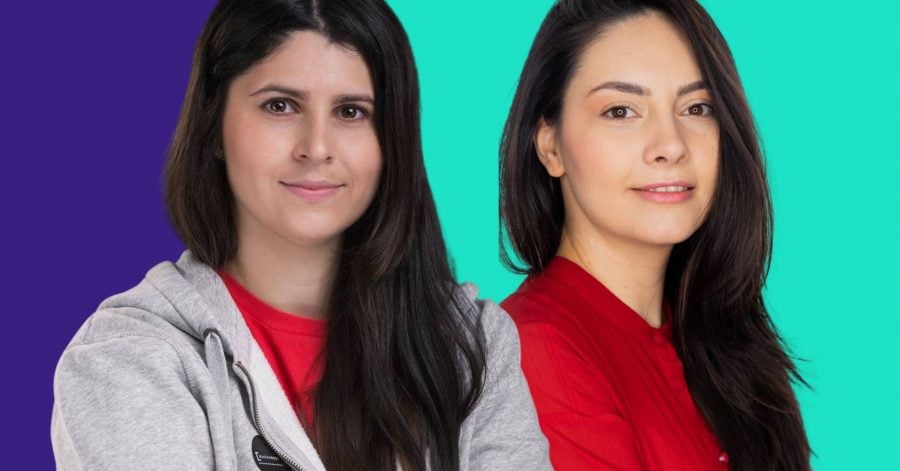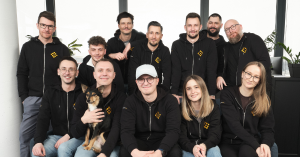BeAI has announced the winners of the 2021 edition of their program. Romanian VatisTech won the accelerator readiness award. DeepQuestions received the award for best use of AI tech, and HiringDNA won the public’s choice award with 600 public votes. BeAI is Europe’s AI Pre-Accelerator based in Bucharest, Romania, that focuses on deep tech startups and ideas to take them from concept to MVP.
Amongst the winners, there are also Nebuly, which offers a developer-first solution directed at optimizing AI/ML models and their performance, and WeavAir, which is working on building advanced IoT sensors to optimize buildings, vehicles, and vessels to improve safety and reduce carbon footprint.
Alexandra Petrus, the co-founder of Bucharest.AI, shared with us that VatisTech won because “Their performance was clean, they are hard-working and focused. Their tech has a currently large application with speech recognition technologies being one of the hottest AI technologies during these times”. The speech recognition team proved to be open for a new acceleration phase to refine their market positioning, proposition, and customer reach.
While DeepQuestions, a deep learning-based question-answering AI startup launched in October 2021 in Bucharest, Romania, won due to metrics such as robustness, precision, and strategy.
The Bucharest.AI jury was made up of Andras Nagy (CTO, Vivre), Erik Barraud (Tech Exec), Alexandru Sarbu (Investment Manager, SeedBlink), Elena Unciuleanu (Founder Tech Ventures), Raul Popa (CoFounder TypingDNA), Raluca Crisan (CoFounder Etiq), Irina Leca (Fitbit Marketing Manager, Google), Adrian Matei (Data, AI & Enterprise Solutions Director, Orange Romania), Cristian Dascalu (GapMinder VC Partner & CoFounder Techcelerator).
“All startups part of the BeAI pre-accelerator will automatically enter the AI community behind #BeAI and this shall unlock various types of growth and knowledge opportunities. The European BeAI community is where AI developers, AI mentors, and AI practitioners meet and join their efforts to grow ideas and contribute to the global AI ecosystem,” Ioana Irimia, co-founder of Bucharest.AI, shared with The Recursive.
To keep up with what the winners of the 2021 edition will be up to next, we talked to VatisTech and DeepQuestions founders. Both Adrian Ispas, founder and CEO of Vatis Tech, and Vlad Florea, co-founder, and CTO of DeepQuestions, shared that they found 1-on-1 sessions especially helpful to tackle the challenges they are facing, like hiring people.

THE RECURSIVE: What challenges are you aiming to solve with your solution?
ADRIAN ISPAS: Building a speech recognition technology that people love to use. A speech recognition technology that gives them back the time. That technology for people will go from barely using it to using it all the time. This is what inspires us.
We’ll do that by pushing the limits of technology from 95% accuracy to 99% accuracy. We have already started with the Romanian language and, at the moment, we’re working on new languages.
What do you have planned for 2022?
Next year, we’ll work to improve the accuracy of our technology. We’ll start to develop our technology in new languages and new domains. We’re planning to grow our team with marketing, sales, and engineering talents. At the same time, we’re planning to raise a new seed round.
How do you see the industry vertical you’re operating in to be evolving in Romania in the next 2-3 years?
The speech recognition domain will evolve a lot in Romania in the next 2-3 years. Insights from the market: people are ready to use speech recognition technology, but speech recognition technology isn’t ready for people. But not for long.
In 2022 there will be more talks about AI regulations. What are you looking forward to getting established?
I think some regulations on building ethical AI will be very useful for us as a society because the power of AI is unlimited, but this power has to be put in the right way and in the right hands.

THE RECURSIVE: What challenges are you aiming to solve with your solution?
VLAD FLOREA: All of us have, at some point, had an unpleasant experience that can be traced back to the mountains of documents that get passed around between employees in a company: procedures, regulations, client information, to name a few. All of which contain important text-based information that employees are expected to know and apply to their work.
Considering the recently very high employee turnover rates and the generally poor centralization of all this data in company-wide mailing lists, chat messages, internal wiki sites, and so on, there are bound to be mistakes at some point and any mistake could result in a PR disaster.
We thus made Deep Questions to make sense of all this data, allowing employees to interact with it in a much more natural and relaxed way, speeding up their workflows and preventing mistakes. Higher-level staff can then have more time to focus on essential matters and can use our solution as a digital “magic crystal ball” to monitor the state of internal operations.
We developed a solution we would have always loved to use but never had: a personal assistant for company matters.
What do you have planned for 2022 for your startup?
We are currently working on deploying a proof-of-concept implementation with a few select partners, to try out our models in the real world, and we aim at deploying our first beta around Q2 next year. So far, our solution has been focused on companies in the IT industry, which use a vocabulary with lots of technical terms. In the future, we aim to extend our models to other industries, such as legal and accounting, where we also identified many procedures that we can speed up.
How do you see the industry vertical you’re operating in to be evolving in Romania in the next 2-3 years?
Our country is the host to prime examples of companies that experience the problems we aim to solve. This is the main reason why we decided to focus on IT service centers first, as we have many such companies operating in our country, with very high employee turnover rates and intricate or sometimes simply chaotic internal procedures. The need for automation is immense, and we are certain AI will play a big role in the Romanian business sector in the coming years.
As far as startups go, we feel that our country is positioned right in the middle between Silicon Valley and far eastern technology hubs, having people with great expertise and relatively moderate development costs. The Romanian startup segment has grown significantly in the last few years and will surely continue to grow in the future, as more and more Romanian companies prove themselves to the rest of the world.
In 2022 there will be more talks about AI regulations, what are you looking forward to getting established?
We are truly excited that the impact of our industry has reached a point where regulators have to take everything seriously. In the past, AI was the fuel of Sci-Fi movies, but now it has become very tangible, powering the digital assistants in our smartphones, curating our news, and enhancing the safety of our vehicles. While these are beneficial to us humans, we all have seen news depicting unethical uses of AI systems or their shortcomings such as very high bias when applied incorrectly or for areas our algorithms are simply not ready to tackle yet.
We hope better legislative requirements will be able to mitigate these shortcomings and help build systems that can enhance the future of humanity, removing the negative shade that some unethical AI uses have cast over our industry in the past.







